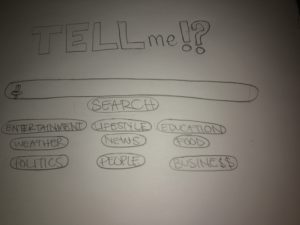
Search Engine
Digital media is an outlet that is continuously being edited, advanced, and critiqued. With that being said, there is something for everyone, whether that be topics and information on news, entertainment, education and even politics. The tools of digital media helps its users obtain information in many quick and easy methods, leaving me to believe that it is definitely expanding our knowledge rather than impending it. According to Anna Notaro, author of The Lo(n)g Revolution: The Blogosphere as an Alternative Public Sphere? “Many of us seem to be convinced that “the information highway” will somehow transform our society into a better place. Some think it will fix health care and education.” Now information is everywhere. That same information has and continues to shape who we are as a society in addition to who we are as individuals. Without the internet, media, and technology, many advancements, discoveries, and information would not be manufactured, found, or spread.
With the presence of the internet it is much easier to research and look up people, places, and things. For some people it is beneficiary and for others it is quite the opposite. Jeffrey Rosen, author of The Web Means the End of Forgetting, highlights the idea that the internet could work against you. He brought up the story of Stacy Snyder, a former teacher in training , who posted a picture at a party with the caption “Drunken Pirate.” Rosen claims that “After discovering the page, Snyder’s supervisor at the high school she was working at told her that the photo was “unprofessional,” and the dean of Millersville University School of Education, where Snyder was enrolled, said she was promoting drinking in virtual view of her under-age students. As a result, days before Snyder’s scheduled graduation, the university denied her a teaching degree.” This is a common example of being penalized for your presence on social media in the workforce, and a professional atmosphere. Many employers and businesses do searches and background checks on potential future employees as well as current employees. It ensures that their business or company is not negatively impacted by the content put out by their representatives(their employees). While I do believe it is unfair to punish someone based on what they post online if it doesn’t intentionally target their job, business, or company, I do think as a professional you should carry yourself a certain way on social media especially if your account is public and includes your full name. Nevertheless, the tools of digital media are extremely helpful in the long run. They emphasize and shine light on many situations, stories, people, and things. With posts, websites, and apps, information is in the palm of our hands.

Recent Comments